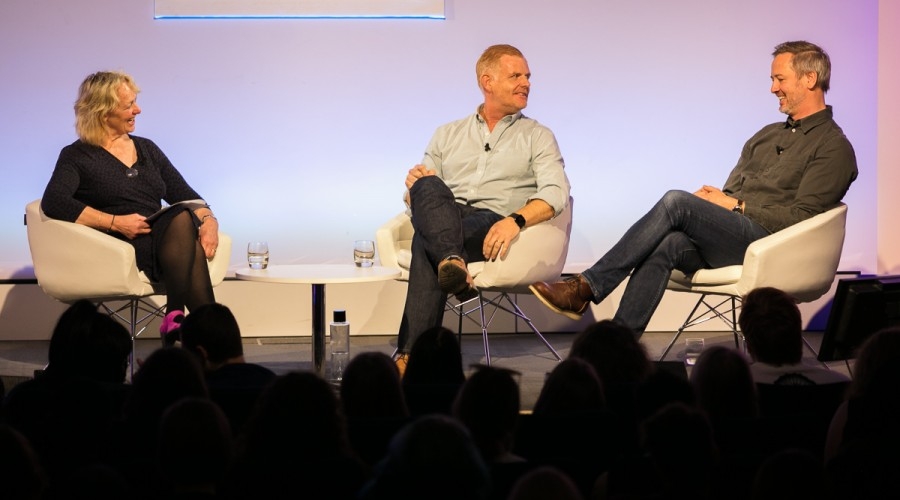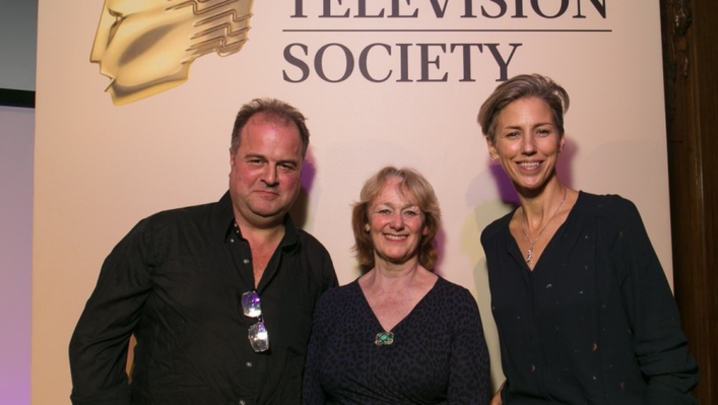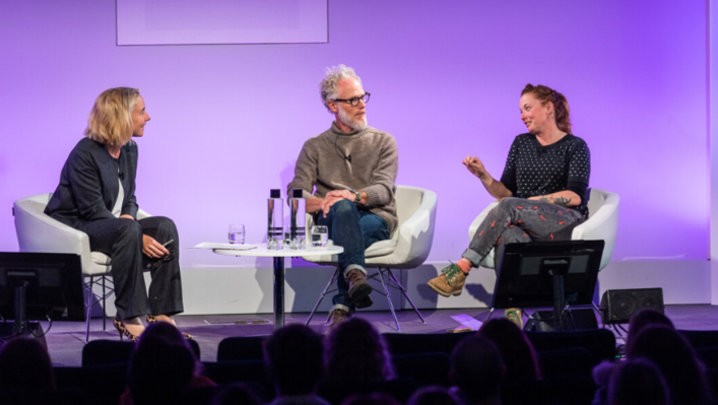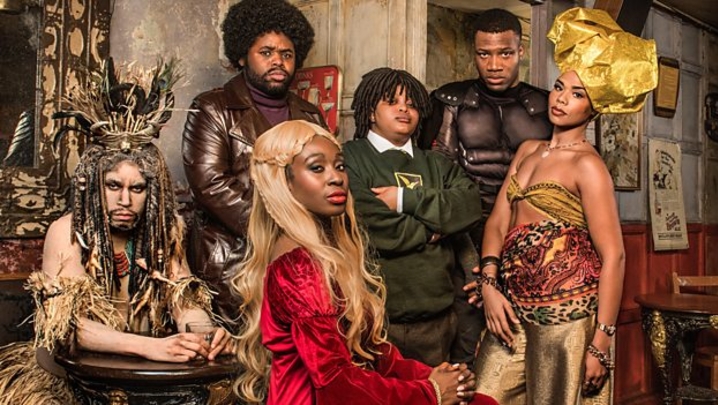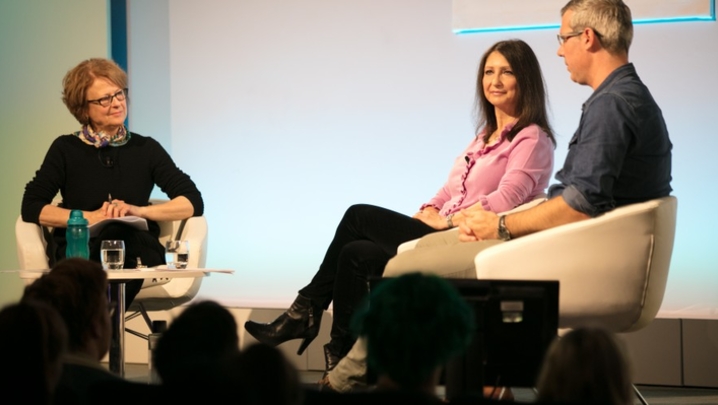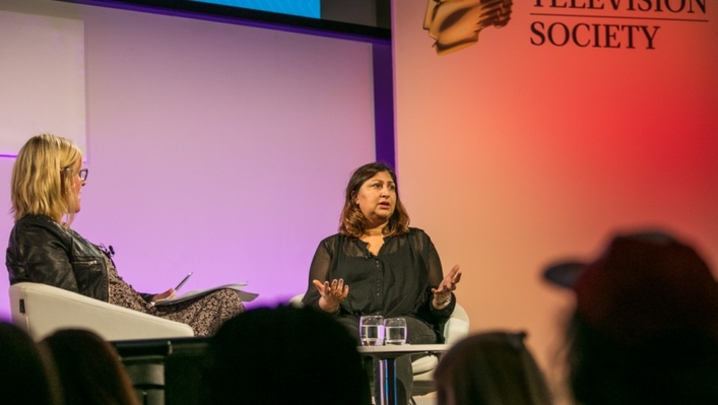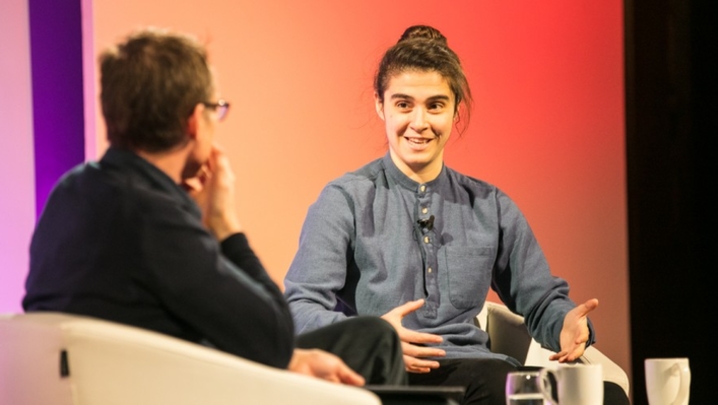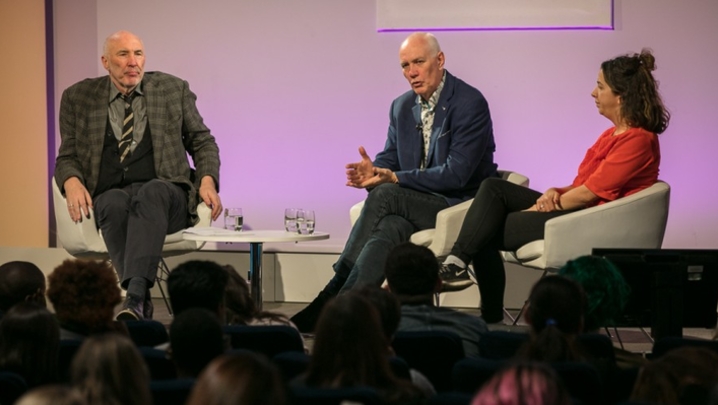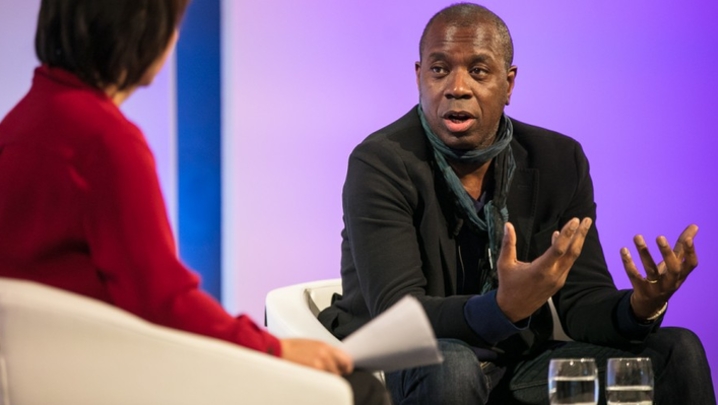Two highly experienced directors of photography (DoP), Phil Mash and Geraint Warrington, discussed their careers with Helen Scott, former head of factual programmes at ITV Yorkshire, at the camerawork masterclass.
Mash has worked widely on US series House Hunters International and also shot an interview with Stephen Hawking for US talk show Last Week Tonight with John Oliver. Warrington, who usually works in natural history on programmes such as Channel 5 series Ben Fogle: New Lives in the World, recently shot CBBC drama Wolfblood Secrets, his first outing as a drama DoP.
At the start of his career, Mash “always had faith in my creative eye, but I was rubbish at the technical side … You’ve got to [develop] the technical knowhow in order to make your creative pictures happen.”
Stills photography is a great way to practise. “Filming is effectively a series of … still frames. Composition is everything.”
“More than anything in this game, [you need] passion,” said Warrington. “It’s not a job – it’s your life [if you are] away from home the amount of time we are.”
“I operate drones now – it’s a new part of our work,” revealed Warrington. Scene-setting overhead shots on wildlife films would have once required a helicopter to film them, “and the cost of that would have been through the roof. The drone has enabled productions to get these amazing wide shots.”
Cameras “can all be good or bad, depending on who’s got hold of them … [But] the lenses on the front of the camera make a huge difference,” argued Mash. Warrington agreed: “Try to use the most expensive lens you can afford. I mainly shoot on the Sony F55 – it’s an amazing quality camera. It’s also quite lightweight … 90% of the stuff I do is [with the camera] on the shoulders.”
iphones “are great for practising composition – but that’s it … They don’t teach you how to create a look on a normal camera. [You don’t] learn the full skills of photography … I’m a great believer in [learning] on a proper camera.”
To practise, “a digital single-lens reflex camera (DSLR) is the place to start”, said Mash. “And on eBay you can pick up some really nice lenses quite cheaply.”
Studying for qualifications gives you training: “You can practise in college, experiment … and gain the technical knowledge on how cameras work and lenses … I took the college route and did two years at [media and design university] Ravensbourne, which was amazing,” said Warrington, Mash added: “Qualifications are great, but you will still have to work your way up … there’s nothing like experience.”
"Contact facility companies where the kit comes from,” suggested Warrington. “You’ll be prepping the kit to go out on shoots, so you’ll have all this equipment in front of you to learn [from] … you could be a very useful camera [assistant] if you know how the equipment works.”
Mash on working with directors: “Some directors are all about the [story], whether that’s a drama or a documentary – all they are doing is listening and they want you to compose the shots and make it look nice … Other directors are really visual and they have you on a very short leash – they want to check everything that you’re doing and work with you on [framing a shot].”


